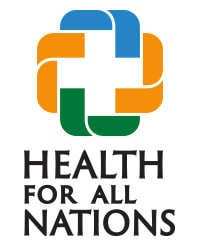|
Nothing creates fear (for some in the Church) as much as the thought of sharing Christ with non-believers. Nothing creates fear (for some in the Church) as much as the thought of sharing Christ with non-believers. Add to this the difficulty we have when doing this with “educated” people. But we all don’t need to have the expertise of apologist Ravi Zacharias to be effective witnesses of the kingdom of God. There is a wonderful chapter in “Walking With the Poor” (Myers, 2011) in which Bryant Myers discusses why we MUST witness and then goes on to describe the difference between proclamation evangelism and what is sometimes referred to as lifestyle evangelism.
Our work will always be a witness to something. And according to Jayakumar Christian whatever we put at the center of our development program (in our case health outreaches) during its lifetime will tend to be what the community worships in the end. (1998, “Reflections On Poverty and Transformation.” Lecture series for the WVI Board of Directors) The way in which we conduct our health related missions activities is a witness not only to those we are serving but also to those who are observing. By this I mean those who perhaps have given us permission to conduct health care services in needy areas but who are not themselves followers of Christ. Local health ministry officials, hospital administrators, mayors and the list goes on. This would also include “development” workers who are also a witness to our work. For example members of Doctors Without Borders works in many of the most difficult to reach and work regions of the world. And we have good news for them as much as we have good news for those we are directly serving in delivering healthcare in Christ's name. Newbigin (1989, The Gospel in a Pluralist Society pg 132-33) highlights the fact that in Acts the examples we read of proclaiming the good news came as an opportunity to answer questions raised in the minds of onlookers who were witness to signs and wonders. Peter’s first public statement of the gospel, the healing of the cripple at the temple gate and in the story of Stephen) The proclamation comes not as a planned event but in reaction to questions raised because of the activity of the disciples in the community. Conducting health related ministry work with excellence and with an uncompromising care for each person as a unique individual created in the image of God will be enough to create questions in the minds of those observing our work to ask us what it is that motivates us to do what we are doing. This doesn’t create a setting where we feel inadequate to respond unless we have a theological degree but is the time for witnessing to the good news of the person of Jesus the Christ and what he was able to accomplish on the cross some 2000 years ago. So when the time comes we must be ready to respond not with eloquent words but truth in love. I Corinthians 2: 1 And I, brethren, when I came to you, did not come with excellence of speech or of wisdom declaring to you the 1 testimony of God. 2 For I determined not to know anything among you a except Jesus Christ and Him crucified. 3 b I was with you c in weakness, in fear, and in much trembling. 4 And my speech and my preaching d were not with persuasive words of 2 human wisdom, e but in demonstration of the Spirit and of power, 5 that your faith should not be in the wisdom of men but in the power of God.
0 Comments
Leave a Reply. |
AuthorThis is the blog for the Best Practices in Global Health Mission division of the Center for the Study of Health in Mission. It is a space for all who are interested in sharing opinions, ideas and best practices having to do with Christ centered health related ministry. Archives
April 2020
Categories |

© 2024 Health for All Nations All Rights Reserved In Partnership with Frontier Ventures and the Ralph D. Winter Launch Lab |
ABOUT The mission of Health for All Nations is to engage the global Christian community in the exploration and application of biblical revelation, scientific evidence, and cumulative experience as they relate to health and wholeness. Our mission includes assisting the global Christian church in fulfilling its mandate to promote health and healing among the nations. Learn More |
Proudly powered by Weebly


 RSS Feed
RSS Feed
